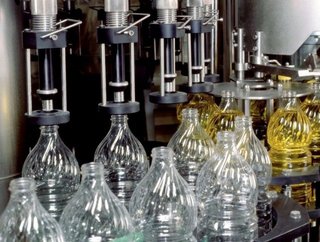4 ways IoT tech is revolutionising production lines

The Internet of Things (IoT) isn’t a new topic of discussion. Connected “things” are everywhere – from refrigerators to watches and cars – changing our interactions with friends, family and co-workers. While IoT discussions often centre on consumer use, there is great potential for adoption on the manufacturing shop floor.
Today’s factory bears little resemblance to the stereotypical image of manufacturing. Long gone are the days of repetitious assembly lines where workers create part after identical part. Today’s modern shop floor is a hub of technology, full of sensors, electronic controls and automated equipment. These interconnected devices drive efficiency, quality and flexibility. Here’s where I see the biggest impact of these new connections.
Quality control
Factory productivity continues to rise, as plants produce more and more with ever increasing efficiency and quality. Connected tools and machines are a key aspect of these gains. Take the IP (Internet Protocol) torque wrench in the assembly of a complex part, for example. When connected to the cloud, the IP torque wrench captures the torque applied to a specific part, the specific wrench that was used, when that wrench was last calibrated and the employee who used it. Faults can be detected in real time, and even when they’re missed the cloud can trace every part affected back to the root cause. Quality and speed are improved.
More customizable products
As customer demands for products change, manufacturers adjust. Automation and the connected factory produce a wider variety of products and product variations in smaller quantities more quickly, answering the market’s increasing demand for near-custom and highly configured products. Fast, efficient and flexible computerized machines are provided instructions for the exact requirements for each product at each moment of production. This is a full-scale transformation of the old-style “economies of scale” approach that drove mass-produced consumer goods.
Safer shop floors
Wearable technologies have the potential to further connect people with plant information, delivering real time machine and production data to operators and managers on the shop floor. As importantly, smart devices connected through a cloud ERP system can improve safety by enabling people and equipment to literally see around corners. For instance, a smart safety vest or a Bluetooth ‘beacon’ will help forklifts and their operators “see” employees and obstacles and provide both alerts or even automatically apply brakes to ensure safety.
Real-time traceability
Beyond the four walls of the production facility, the shift to cloud-based software systems allows employees, suppliers and customers worldwide to view the status of an order, work-in-progress, inventory, equipment availability, and much more. Visibility won’t stop when the product leaves the plant. Smart products will not only interact with the customer in new ways but will also be able to stay in contact with the producer for better long-term performance, maintenance and support. Quality issues not only get service attention, but can influence future product design. Connected smart technology and the Internet of Things brings the processes and the products together into a new ecosystem for added customer value.
- GTK: IoT, Sustainability & Touchscreen Tech in ManufacturingAI & Automation
- The Opportunities of DSP Technology & AI in ManufacturingSmart Manufacturing
- Matthias Winkeler, Head R&D at Nanoprecise Sci Corp, on IoTAI & Automation
- Smart Manufacturing Explored, From Digital Twins to Gen AISmart Manufacturing






